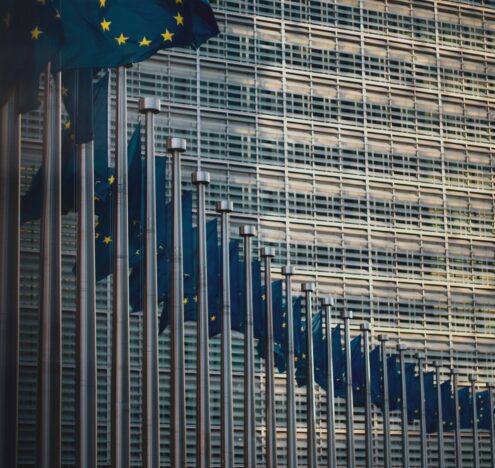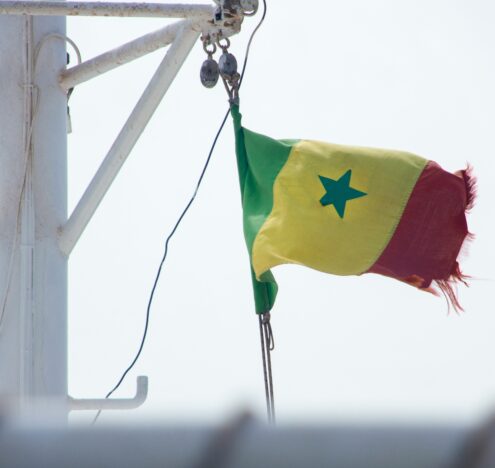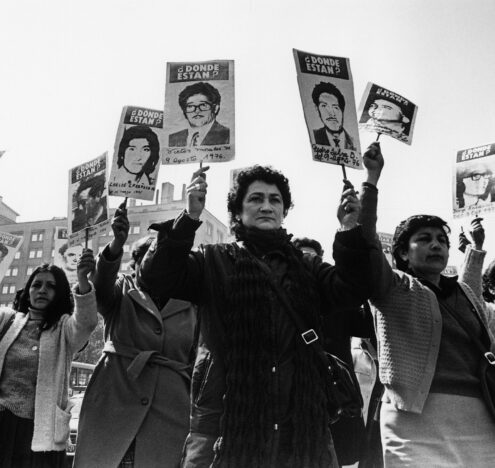In the two years since President Donald Trump took office, his administration has largely failed to coalesce around a unified, coherent foreign policy. But there is one area where the administration’s approach has remained remarkably consistent, both domestically and globally: restricting sexual and reproductive rights, especially abortion rights.
While previous US presidents have voiced anti-abortion views, Trump has taken unprecedented steps to integrate fundamentalist beliefs about women’s health into US policy. He has appointed a cadre of anti-abortion ideologues to key, high-level positions within the government. These officials are the driving force behind policies that include blocking immigrant women from obtaining legal abortions and bolstering “conscience” rules that allow health care providers to deny vital services to women and LGBTQI people.
Similar tactics are being deployed at the international level. On his third day in office, the president reinstated the Global Gag Rule, which cuts off US funds from foreign NGOs that provide any abortion-related services, information, or referrals. Unlike previous versions, Trump’s Gag Rule applies to the entirety of US global health funding—nearly $9 billion—and his administration is actively working to redirect that money into the pockets of faith-based, anti-abortion groups.
Rather than work within the UN system, the US has chosen to repeatedly remove itself from formal and informal leadership roles.
These actions have appeased Trump’s evangelical base, but at a high cost. His extreme positioning on reproductive rights has taken a toll on diplomatic relations at the United Nations (UN), where the US delegation has found itself increasingly isolated in negotiations.
AMERICA FIRST PUTS HUMAN RIGHTS LAST
Steve Bannon left the White House in 2017, but his far-right, nationalist agenda continues to assert itself in the Trump administration’s dealings at the UN and other global spaces. When the president spoke before the UN General Assembly in September, his stance was unequivocal: “We reject globalism and embrace the doctrine of patriotism.” But upholding an America First doctrine within a forum dedicated to international diplomacy necessitates, more often than not, inaction, isolationism, and outright hostility.
Rather than work within the UN system, the US has chosen to repeatedly remove itself from formal and informal leadership roles. In doing so, it has decidedly weakened the standing of American diplomats at home and abroad. At a time when the world most needs champions of peace and human security, the administration’s withdrawal from the Human Rights Council and its threats to sanction the International Criminal Court, among other actions, have painted the picture of a nation in retreat. The departure of Nikki Haley as US ambassador to the UN, and the long delay to fill this critical vacancy, has made clear the extent of Trump’s apathy toward multilateral institutions and their capacity to reinforce human rights standards worldwide.
ABORTION AS THE EXCEPTION
In negotiations, the US often pushes back on trade, climate change, and immigration issues—but its opposition to sexual and reproductive rights, in particular, flies in the face of global consensus and has created friction with traditional allies.
Under Haley, the US attempted to derail the appointment of Michelle Bachelet, now UN high commissioner for human rights, due to her work to decriminalize abortion in Chile. The delegation also adopted an internal policy to reject widely accepted terms related to gender and sexuality, and it has frequently tried to walk back resolutions to protect women and children from violence, most recently in December 2018. On that occasion, the US was the only country to oppose the resolution. (Thirty-one Member States chose to abstain from the vote rather than jeopardize the passage of the resolution.)
In March 2018, in a closed-door meeting at the UN, a senior Trump official described the United States as “a pro-life nation.” The statement came in the middle of the Commission on the Status of Women, the largest annual UN meeting focused on women’s empowerment and gender equality, and immediately drew criticism from human rights groups. One diplomat called the comment “shocking” and said it demonstrated a weaker stance on reproductive rights than that of Saudi Arabia—a country in which women require permission from a male guardian to work, travel, and obtain certain health care services.
As this year’s Commission on the Status of Women approaches, such isolationist behavior is a reminder of what’s at stake when ideology drives foreign policy. Trump’s sustained anti-abortion campaign at the UN—a blatant effort to cater to the demands of an ultraconservative, one-issue voting bloc—has put global progress for women and girls at risk, and undermined America’s position as a world leader and human rights advocate. It’s time this administration realized that women’s rights are not a political bargaining chip, but a crucial element of any foreign policy agenda that prioritizes peace and security.
Sarah Harper is a communications assistant at the International Women’s Health Coalition in New York.





















